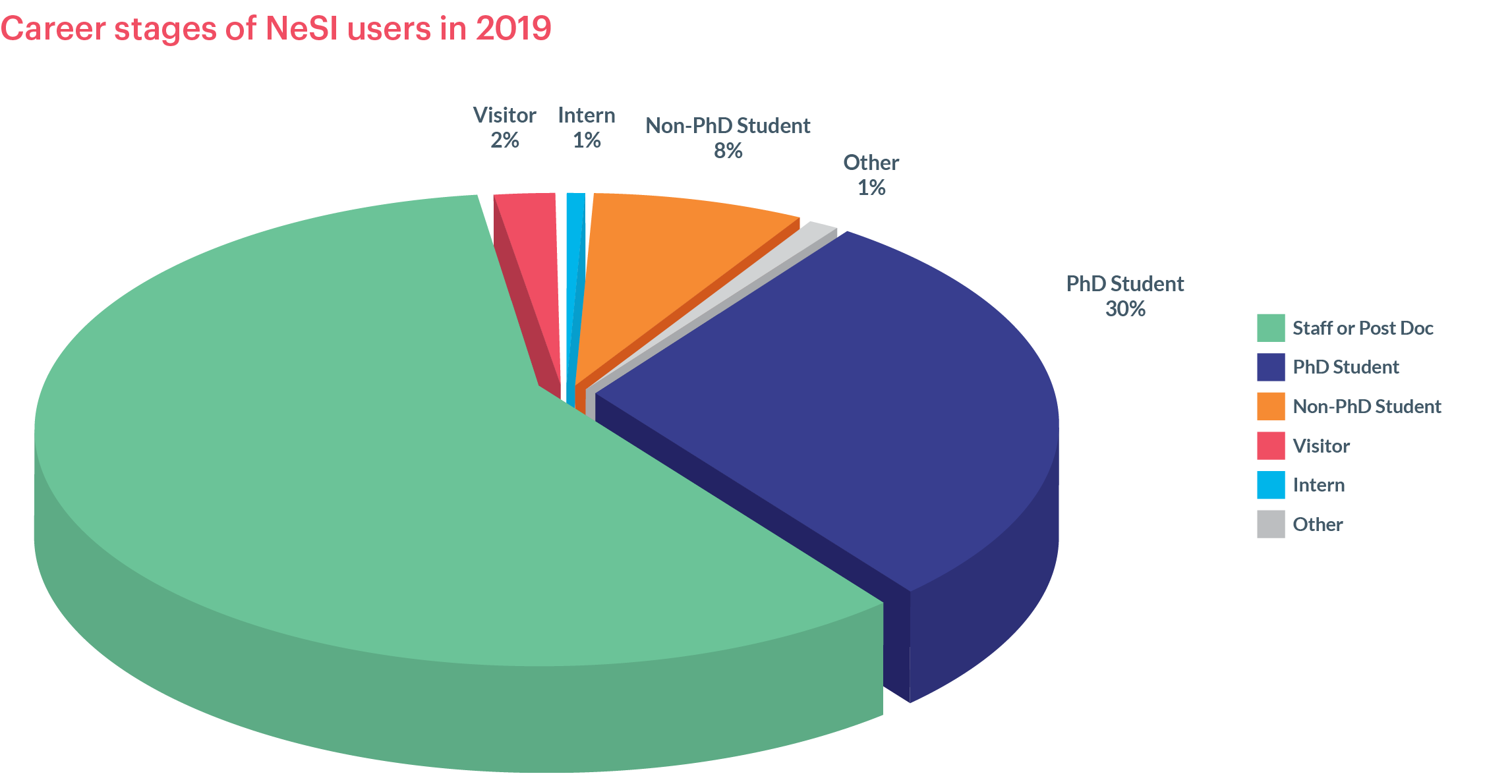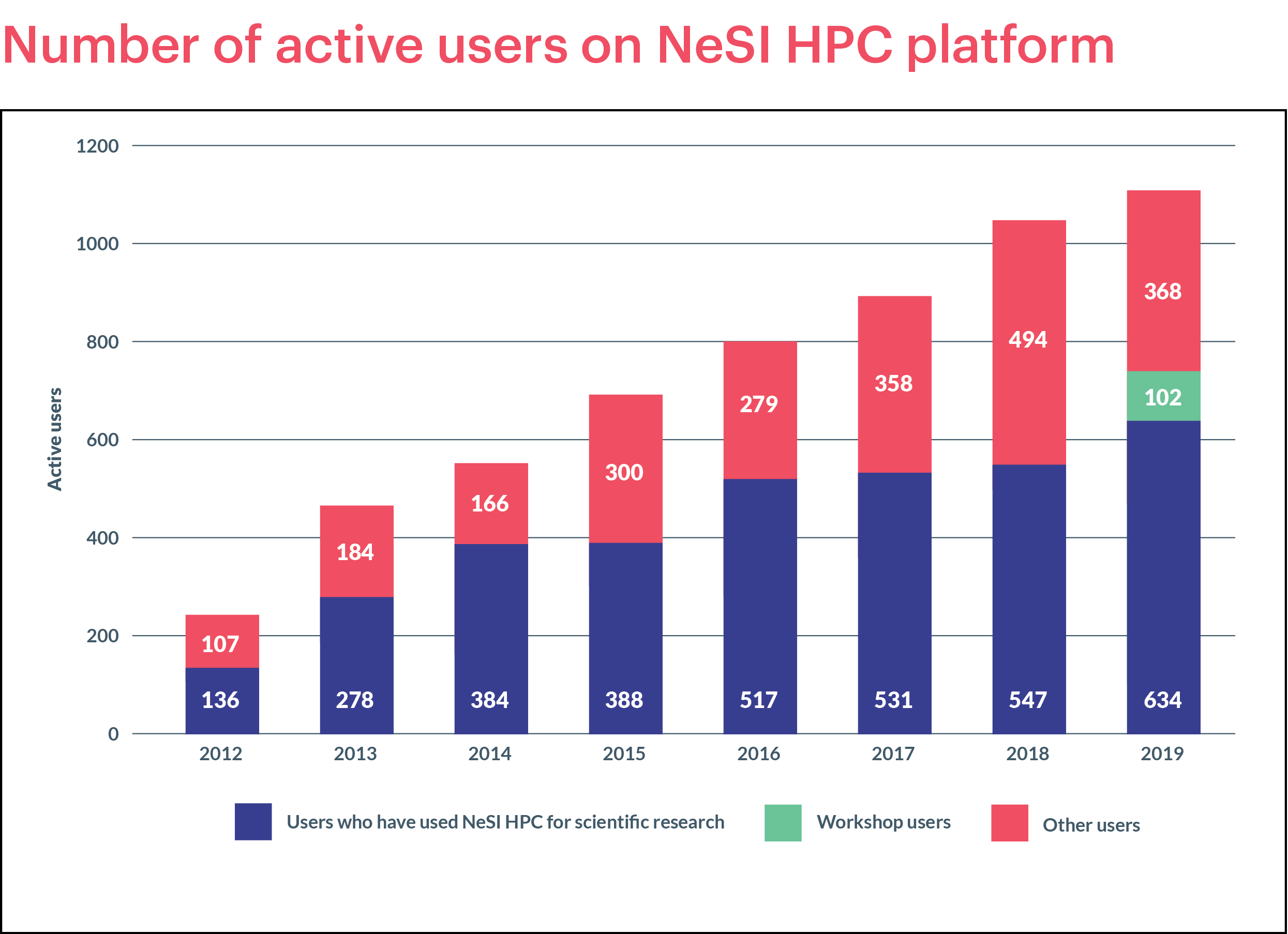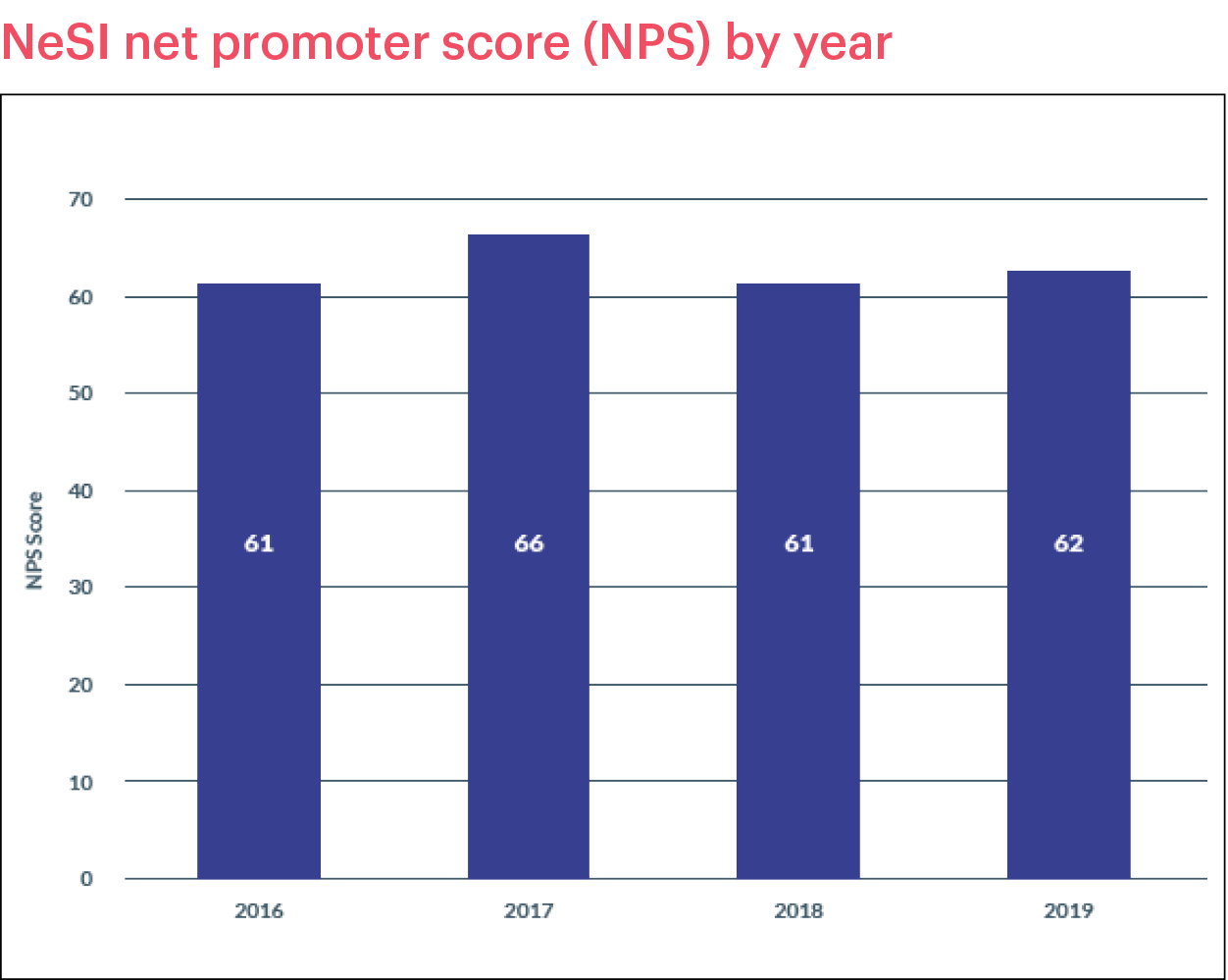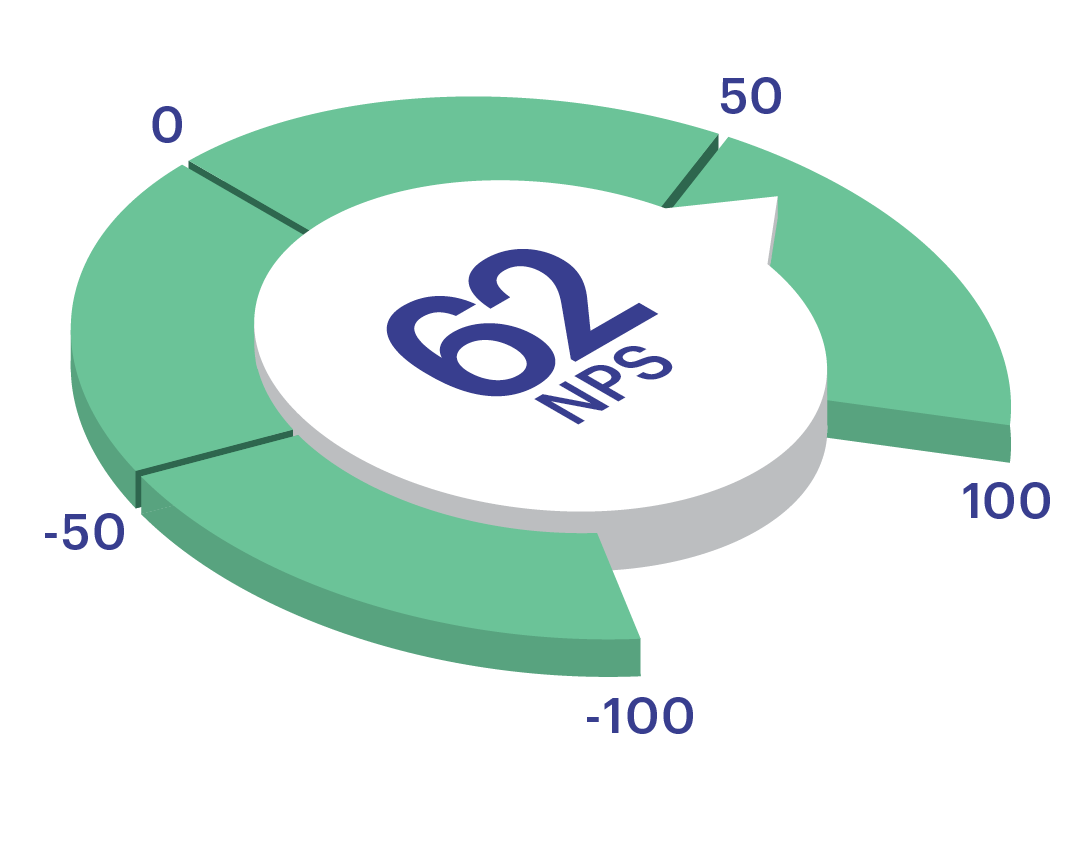Grow advanced skills that can apply high-tech capabilities to challenging research questions
NeSI works closely with New Zealand research organisations and communities to build sustainable, scalable training programmes that enable and empower researchers to tackle large or highly complicated scientific challenges.

The training needs of New Zealand researchers are incredibly varied and learning new skills takes time — often more time than the typical two-day duration of most training workshops. To address these challenges, NeSI took steps in 2019 to expand and diversify its training offerings and approaches.
Targeting support and training efforts
To further support the growing community of researchers considering data science techniques for their research, NeSI ran three data science / machine learning Hacky Hours. These were delivered in partnership with NIWA in Wellington and University of Auckland Faculty of Medical and Health Sciences, as well as hosted during NeSI’s Science Coding Conference.
In addition to helping new users get started with research computing, NeSI also recognised there was a desire amongst some existing users to further advance their HPC skills. Users who were comfortable using the platforms wanted to know how they could optimise their code and outputs. NeSI staff responded by developing a training curriculum targeted at performance optimisation, covering topics such as code profiling, optimisation, and parallelisation for those looking to take their jobs to the next level. This material was available online for all NeSI users and was delivered in two hands-on workshops in 2019.
NeSI’s Consultancy projects have also uncovered opportunities for transferring and embedding essential digital skills in research groups. NeSI experts providing instruction and guidance around using Github, code optimisation techniques, and profiling tools has enabled many researchers to repurpose and implement those skills into future work and other projects.
Overall, these targeted support and training activities contributed to an increase in the number of active users on NeSI’s HPC platform in 2019 (see below).

Closing feedback loops
To ensure NeSI resources and services provided were meeting researchers’ needs, and to identify and resolve any barriers to entry or use, efforts were made in 2019 to improve NeSI’s collection and response to user feedback. A range of feedback sources were identified (support tickets, workshop feedback, end of allocation surveys, anecdotal feedback) and this was fed into NeSI’s user journey mapping work, providing useful evidence to articulate pain points in the voice of the researcher.
Also, the team delivering NeSI’s Consultancy service now completes all Consultancy projects with a feedback survey, which has increased the visibility of researcher input and helped improve the service.
“It’s been helpful to have routines optimised through NeSI assistance. They’ve helped with the user interface, so it’s easier for students and researchers to put their data into the model, experiment with the governing parameters, and then observe what comes out of it.”
- Dr Jon Tunnicliffe, University of Auckland
NeSI net promoter score (NPS) by year
NeSI uses the Net Promoter Score (NPS) as a measure of user loyalty, to indicate the likelihood of a user to recommend NeSI to a colleague. Scores range from -100 to +100., with a score over 0 deemed as good, and over +50 as excellent. Over time, NeSI has had a consistently excellent score, indicating researchers are very likely to recommend NeSI to their colleagues (see below).







